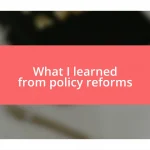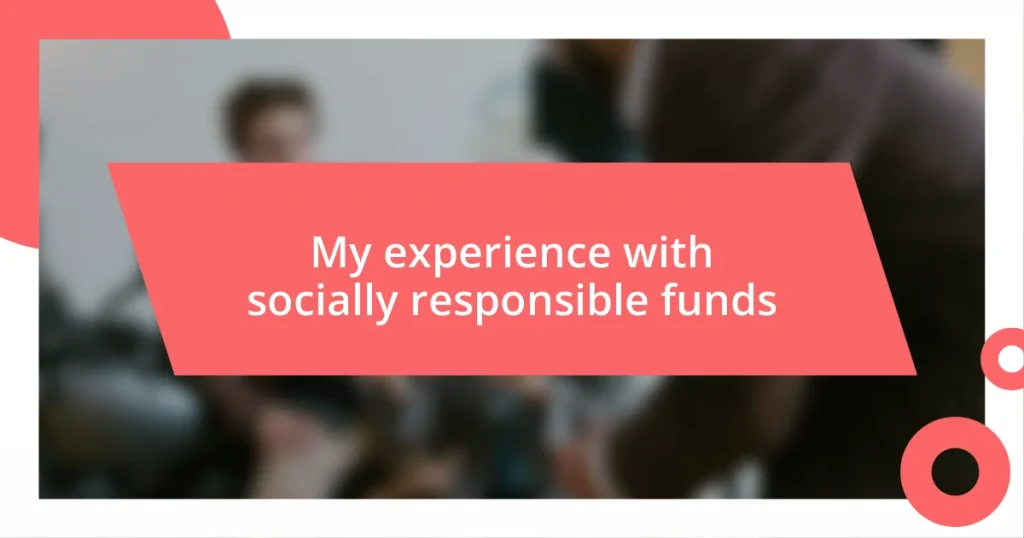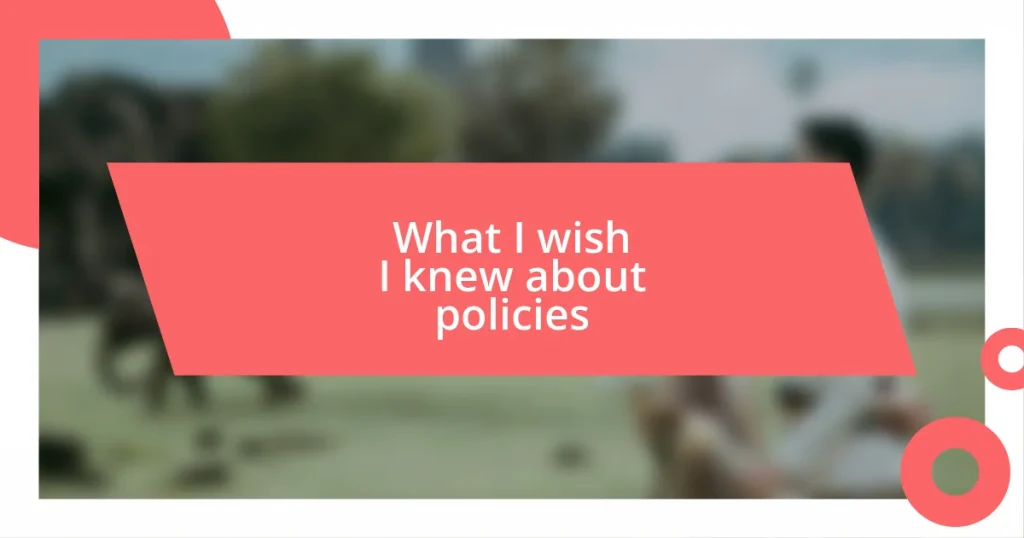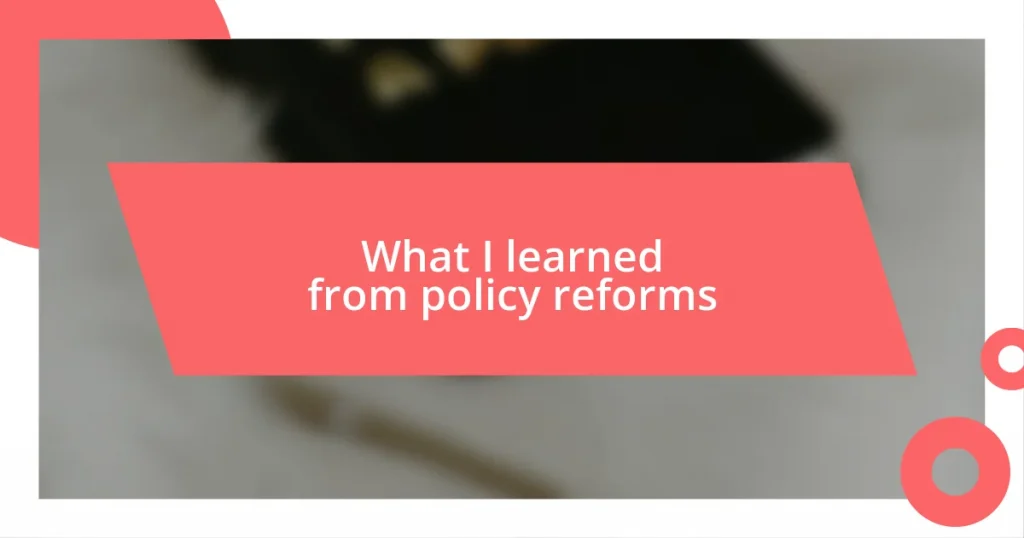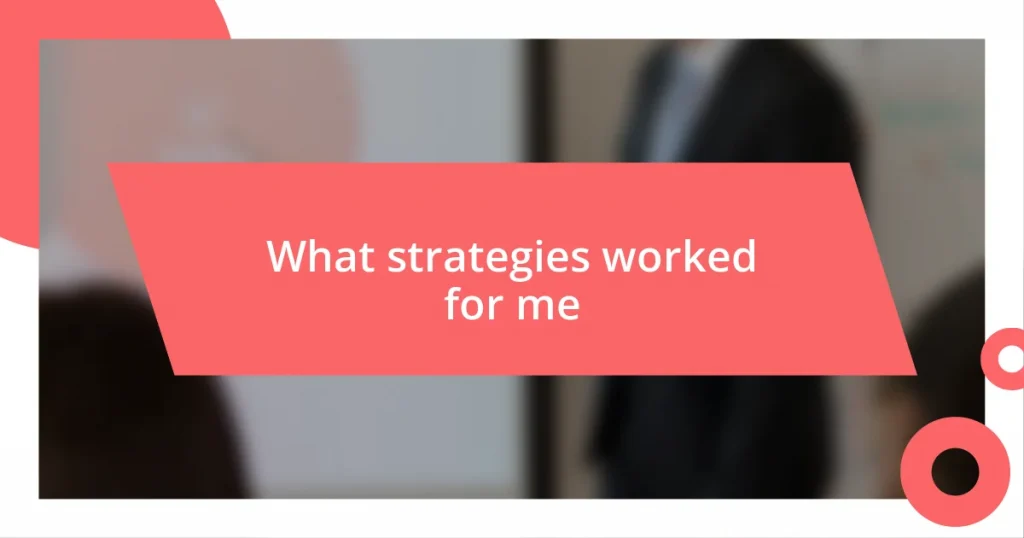Key takeaways:
- Socially responsible investing (SRI) aligns financial goals with personal values, focusing on ethical guidelines that vary for each individual.
- The author’s investment strategy emphasizes selecting funds that prioritize ESG criteria and regularly reviewing the portfolio for alignment with evolving values.
- Challenges include navigating overwhelming investment options, inconsistencies in fund performance, and balancing the emotional toll of investing responsibly with the reality of market fluctuations.
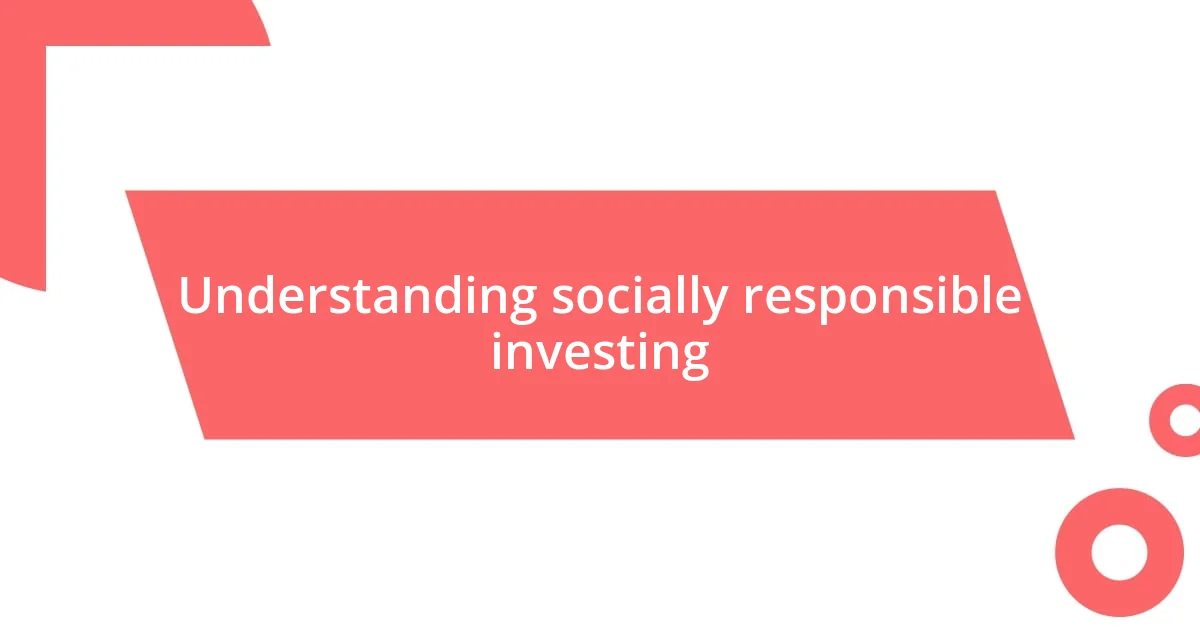
Understanding socially responsible investing
Socially responsible investing (SRI) revolves around the idea of aligning one’s financial goals with personal values. I remember the first time I explored this concept—sitting at my desk, I felt a surge of excitement imagining my investments not just growing, but actually contributing to positive change. Isn’t it energizing to think that your money can support companies that promote environmental sustainability or social equality?
At its core, SRI involves selecting investments based on a set of ethical guidelines, which can vary widely from person to person. I find it fascinating that some individuals prioritize environmental, social, and governance (ESG) criteria, while others have personal reasons rooted in their communities or cultures. This makes me wonder, how often do we reflect on the impact our financial choices can have beyond mere profit?
Diving deeper into SRI can unveil both benefits and dilemmas. For instance, I once researched a fund that promised strong returns and a commitment to renewable energy. It stirred my curiosity; could I truly invest and still see financial growth? My journey taught me that while SRI can sometimes lead to trade-offs, the fulfillment of knowing my investments are making a difference often outweighs those concerns. How do you feel about the balance between conscience and capital growth?
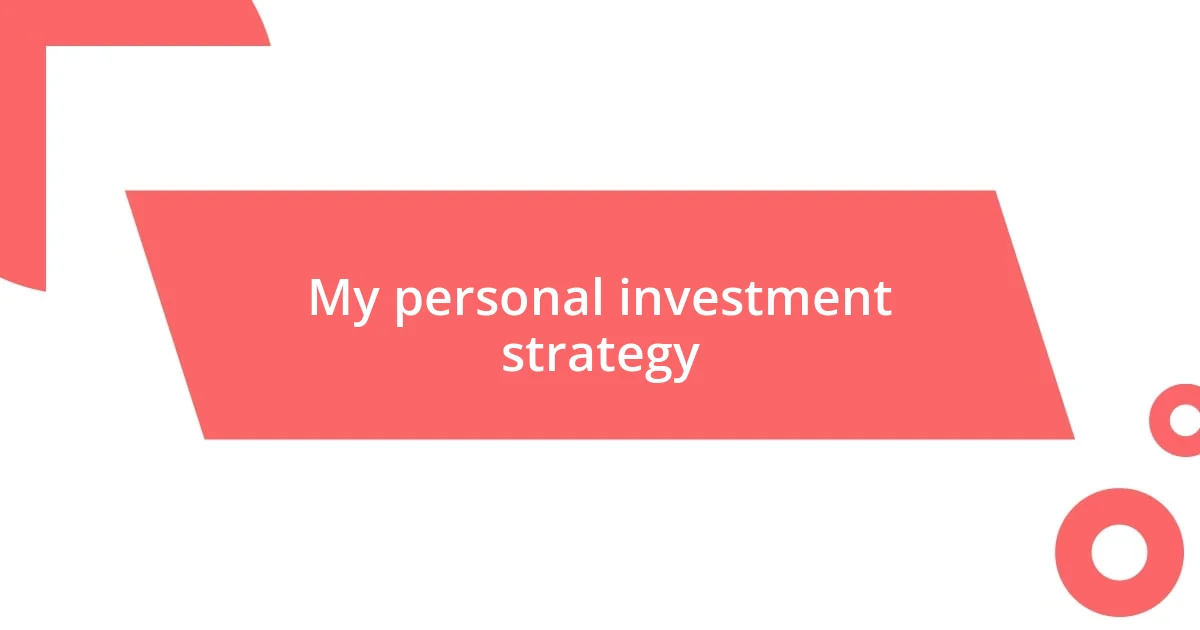
My personal investment strategy
When it comes to my personal investment strategy, I’ve come to realize that aligning my portfolio with my values is vital. I remember a moment when I reviewed my investments and felt a pang of disconnect; I was supporting companies that didn’t reflect my beliefs. This realization prompted me to shift toward socially responsible funds that resonate with my ethos, focusing on those that prioritize sustainable practices and ethical governance.
Here’s how I approach my investment strategy:
- Prioritize funds that emphasize ESG (Environmental, Social, Governance) criteria.
- Choose companies with positive social impacts, like those involved in renewable energy or community development.
- Regularly revisit my portfolio to ensure it aligns with my evolving values.
- Seek out financial advisors who understand and respect my commitment to socially responsible investing.
- Balance growth potential with moral integrity; sometimes, slower financial growth feels worthwhile.
In this way, I’ve managed to create a portfolio that not only aims for financial returns but also reflects who I am and what matters to me. I often feel a sense of pride reviewing my holdings, knowing each one contributes to a larger narrative of responsibility and positive change. It’s a journey of learning and adaptation, but one that I find deeply rewarding.
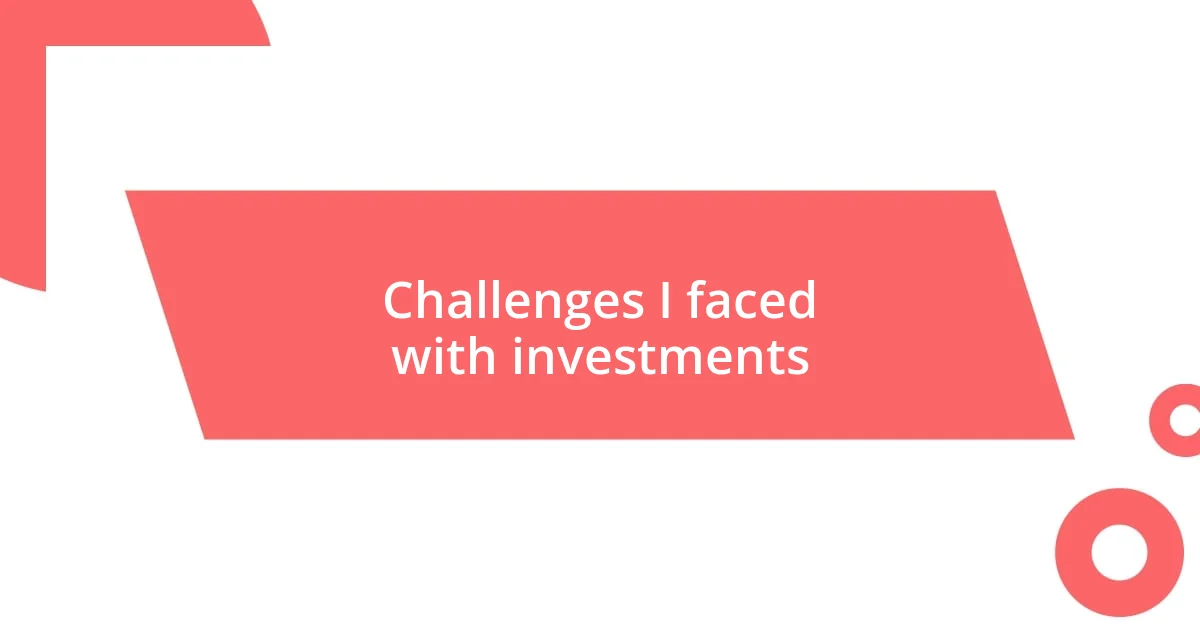
Challenges I faced with investments
Navigating the investment landscape has been a real eye-opener for me, particularly when it comes to socially responsible funds. One challenge I faced was deciphering the myriad of options available. I recall spending hours sifting through fund descriptions, feeling overwhelmed by the jargon. It made me ponder: how can I ensure that my investment truly aligns with my values amidst so many choices?
Another hurdle emerged when I began to notice inconsistencies in fund performance. I had invested in a fund that proudly marketed its commitment to social equity, yet its returns were lackluster. This made me question whether social responsibility came at the expense of financial growth. It was a frustrating discovery that led me to seek deeper insights—should ethical investing inherently mean sacrificing returns?
And then there are the emotional tolls that come with investing responsibly. I vividly remember the disappointment I felt during a market downturn; I worried that my commitment to ethical investing would cost me financially. It’s a delicate balancing act, isn’t it? How do you reconcile your desire to make a positive impact with the reality of the market’s unpredictability? Each setback has taught me resilience and the importance of sticking to my values, even when the road gets rocky.

